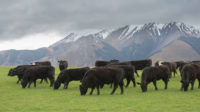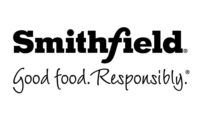Arla Foods, Basking Ridge, N.J., and its 10,300 farmer owners launched ambitious targets to accelerate the transition to sustainable dairy production with an intensified focus on the farms. The main target is to reduce greenhouse gas emissions by 30% per kilo of milk over the next decade and work toward carbon net zero by 2050.
“We want to leverage our position as the leading international farming cooperative with 10,300 farmers and perhaps the most comprehensive understanding of dairy farming and production in Northern Europe to accelerate the transition to sustainable dairy production. We have worked toward sustainable farming for years, and we need to go further and faster, not least to help fight climate change, which affects everyone on the planet, especially us farmers,” says Jan Toft Nørgaard, chairman.
The new strategy covers the whole value chain from cow to consumer, and addresses climate, air, water and nature.
“With our farmers’ further commitment, we are in a strong position to ensure that people maintain confidence in dairy as part of a healthy and sustainable diet for the future. Dairy is enjoyed across the world, and plays an important role in providing nourishment to a growing world population – from a basic glass of fresh school milk to advanced whey proteins used in optimized medical nutrition,” says Peder Tuborgh, chief executive officer. “We don’t have all the answers yet, but we call on our farmers, not least the younger generation of farmers, and we call on the industry, academic institutions and governments for collaboration and ideas that will support the transition to more sustainable farming and food production.”
The business will also explore commercial opportunities in the market to help drive the change, according to Tuborgh.
“We believe that a growing number of consumers are willing to reward the most sustainable dairy farmers by paying a little more for their milk in the same way as we have seen with organic dairy. From today, we are starting to work with a group of progressive farmers in both Denmark and Sweden to be able to offer more sustainable conventional and organic fresh milks leading the way on climate, animal welfare and farm management. We will bring their milk to market this year with our leading Arla 24 brand in Denmark and Arla Ko brand in Sweden. And, we will further explore every commercial opportunity that enables Arla farmers to push the frontier in our markets,” says Tuborgh.
Tools and knowledge to drive reductions on farms
The lion’s share of the total emissions from a dairy value chain comes from the farms. For obvious reasons, it’s not possible to reduce a cow’s methane emissions completely, but it can be significantly reduced, for example through optimized feed composition, which is a research area that Arla is investing in. To counteract the emissions, an important part of the strategy is working with Arla farmers to quantify and increase the carbon captured and stored in the soil to increase their positive contribution.
For the farmer, a key enabler is to understand where the farm’s main climate impact is and how it can be reduced. Since 2013, almost 700 on-farm meetings educated groups of farmers on sustainability measures and more than 5,000 climate assessments were conducted on Arla farms.
“The climate assessment is highly motivating because it identifies your farms’ potential for CO2 reductions, which will often lead to cost savings,” Toft Nørgaard.
During 2018, Arla established a digital documentation database called Arlagården Plus to help Arla and the individual farmer systematically measure and benchmark farm performance. So far, Arla farmers are registering data from 96% of Arla’s milk pool in the system on a quarterly basis, including information about their herd, milking system, feed, grazing, land use and animal welfare.
“A next step is to include parameters that will indicate the farm’s impact on climate and environment. This will give us an opportunity to see in which areas we have the biggest potential, to identify best practice farms that we can learn from across our cooperative,” says Toft Nørgaard.
Since 1990, Arla farmers have reduced emissions per kilo of milk by 24%. The CO2 reduction from Arla’s operations, including packaging and transport, amounts to 22% since 2005 – even though Arla’s milk intake since then has grown by over 40%.
“Arla farmers are excellent and progressive farm managers, and Arla will support them as much as possible with tools, new technology and new knowledge from scientists and experts. As a business, we are also stepping up our transformation to more sustainable operations using non-fossil fuels, renewable energy, sustainable packaging and less waste with a wide range of new initiatives that we will unfold during 2019 and onwards,” says Tuborgh.






